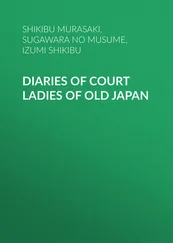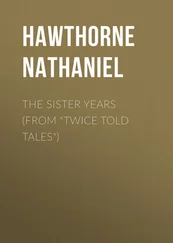Algernon Bertram Freeman-Mitford Redesdale - Tales of Old Japan
Здесь есть возможность читать онлайн «Algernon Bertram Freeman-Mitford Redesdale - Tales of Old Japan» — ознакомительный отрывок электронной книги совершенно бесплатно, а после прочтения отрывка купить полную версию. В некоторых случаях можно слушать аудио, скачать через торрент в формате fb2 и присутствует краткое содержание. Жанр: Сказка, Старинная литература, foreign_antique, foreign_prose, на английском языке. Описание произведения, (предисловие) а так же отзывы посетителей доступны на портале библиотеки ЛибКат.
- Название:Tales of Old Japan
- Автор:
- Жанр:
- Год:неизвестен
- ISBN:нет данных
- Рейтинг книги:4 / 5. Голосов: 1
-
Избранное:Добавить в избранное
- Отзывы:
-
Ваша оценка:
- 80
- 1
- 2
- 3
- 4
- 5
Tales of Old Japan: краткое содержание, описание и аннотация
Предлагаем к чтению аннотацию, описание, краткое содержание или предисловие (зависит от того, что написал сам автор книги «Tales of Old Japan»). Если вы не нашли необходимую информацию о книге — напишите в комментариях, мы постараемся отыскать её.
Tales of Old Japan — читать онлайн ознакомительный отрывок
Ниже представлен текст книги, разбитый по страницам. Система сохранения места последней прочитанной страницы, позволяет с удобством читать онлайн бесплатно книгу «Tales of Old Japan», без необходимости каждый раз заново искать на чём Вы остановились. Поставьте закладку, и сможете в любой момент перейти на страницу, на которой закончили чтение.
Интервал:
Закладка:
Spurred by these words, Chikara seized a spear and gave battle to Waku Handaiyu, but could not hold his ground, and backing by degrees, was driven out into the garden, where he missed his footing and slipped into a pond, but as Handaiyu, thinking to kill him, looked down into the pond, Chikara cut his enemy in the leg and caused him to fall, and then, crawling out of the water dispatched him. In the meanwhile Kobayashi Héhachi and Shimidzu Ikkaku had been killed by the other Rônins, and of all Kôtsuké no Suké's retainers not one fighting man remained. Chikara, seeing this, went with his bloody sword in his hand into a back room to search for Kôtsuké no Suké, but he only found the son of the latter, a young lord named Kira Sahioyé, who, carrying a halberd, attacked him, but was soon wounded and fled. Thus the whole of Kôtsuké no Suké's men having been killed, there was an end of the fighting; but as yet there was no trace of Kôtsuké no Suké to be found.
Then Kuranosuké divided his men into several parties and searched the whole house, but all in vain; women and children weeping were alone to be seen. At this the forty-seven men began to lose heart in regret, that after all their toil they had allowed their enemy to escape them, and there was a moment when in their despair they agreed to commit suicide together upon the spot; but they determined to make one more effort. So Kuranosuké went into Kôtsuké no Suké's sleeping-room, and touching the quilt with his hands, exclaimed, "I have just felt the bed-clothes and they are yet warm, and so methinks that our enemy is not far off. He must certainly be hidden somewhere in the house." Greatly excited by this, the Rônins renewed their search. Now in the raised part of the room, near the place of honour, there was a picture hanging; taking down this picture, they saw that there was a large hole in the plastered wall, and on thrusting a spear in they could feel nothing beyond it. So one of the Rônins, called Yazama Jiutarô, got into the hole, and found that on the other side there was a little courtyard, in which there stood an outhouse for holding charcoal and firewood. Looking into the outhouse, he spied something white at the further end, at which he struck with his spear, when two armed men sprang out upon him and tried to cut him down, but he kept them back until one of his comrades came up and killed one of the two men and engaged the other, while Jiutarô entered the outhouse and felt about with his spear. Again seeing something white, he struck it with his lance, when a cry of pain betrayed that it was a man; so he rushed up, and the man in white clothes, who had been wounded in the thigh, drew a dirk and aimed a blow at him. But Jiutarô wrested the dirk from him, and clutching him by the collar, dragged him out of the outhouse. Then the other Rônin came up, and they examined the prisoner attentively, and saw that he was a noble-looking man, some sixty years of age, dressed in a white satin sleeping-robe, which was stained by the blood from the thigh-wound which, Jiutarô had inflicted. The two men felt convinced that this was no other than Kôtsuké no Suké, and they asked him his name, but he gave no answer, so they gave the signal whistle, and all their comrades collected together at the call; then Oishi Kuranosuké, bringing a lantern, scanned the old man's features, and it was indeed Kôtsuké no Suké; and if further proof were wanting, he still bore a scar on his forehead where their master, Asano Takumi no Kami, had wounded him during the affray in the castle. There being no possibility of mistake, therefore, Oishi Kuranosuké went down on his knees, and addressing the old man very respectfully, said—
"My lord, we are the retainers of Asano Takumi no Kami. Last year your lordship and our master quarrelled in the palace, and our master was sentenced to hara-kiri, and his family was ruined. We have come to-night to avenge him, as is the duty of faithful and loyal men. I pray your lordship to acknowledge the justice of our purpose. And now, my lord, we beseech you to perform hara-kiri . I myself shall have the honour to act as your second, and when, with all humility, I shall have received your lordship's head, it is my intention to lay it as an offering upon the grave of Asano Takumi no Kami."
Thus, in consideration of the high rank of Kôtsuké no Suké, the Rônins treated him with the greatest courtesy, and over and over again entreated him to perform hara-kiri. But he crouched speechless and trembling. At last Kuranosuké, seeing that it was vain to urge him to die the death of a nobleman, forced him down, and cut off his head with the same dirk with which Asano Takumi no Kami had killed himself. Then the forty-seven comrades, elated at having accomplished their design, placed the head in a bucket, and prepared to depart; but before leaving the house they carefully extinguished all the lights and fires in the place, lest by any accident a fire should break out and the neighbours suffer.
As they were on their way to Takanawa, the suburb in which the temple called Sengakuji stands, the day broke; and the people flocked out to see the forty-seven men, who, with their clothes and arms all blood-stained, presented a terrible appearance; and every one praised them, wondering at their valour and faithfulness. But they expected every moment that Kôtsuké no Suké's father-in-law would attack them and carry off the head, and made ready to die bravely sword in hand. However, they reached Takanawa in safety, for Matsudaira Aki no Kami, one of the eighteen chief daimios of Japan, of whose house Asano Takumi no Kami had been a cadet, had been highly pleased when he heard of the last night's work, and he had made ready to assist the Rônins in case they were attacked. So Kôtsuké no Suké's father-in-law dared not pursue them.
At about seven in the morning they came opposite to the palace of Matsudaira Mutsu no Kami, the Prince of Sendai, and the Prince, hearing of it, sent for one of his councillors and said: "The retainers of Takumi no Kami have slain their lord's enemy, and are passing this way; I cannot sufficiently admire their devotion, so, as they must be tired and hungry after their night's work, do you go and invite them to come in here, and set some gruel and a cup of wine before them."
So the councillor went out and said to Oishi Kuranosuké: "Sir, I am a councillor of the Prince of Sendai, and my master bids me beg you, as you must be worn out after all you have undergone, to come in and partake of such poor refreshment as we can offer you. This is my message to you from my lord."
"I thank you, sir," replied Kuranosuké. "It is very good of his lordship to trouble himself to think of us. We shall accept his kindness gratefully."
So the forty-seven Rônins went into the palace, and were feasted with gruel and wine, and all the retainers of the Prince of Sendai came and praised them.
Then Kuranosuké turned to the councillor and said, "Sir, we are truly indebted to you for this kind hospitality; but as we have still to hurry to Sengakuji, we must needs humbly take our leave." And, after returning many thanks to their hosts, they left the palace of the Prince of Sendai and hastened to Sengakuji, where they were met by the abbot of the monastery, who went to the front gate to receive them, and led them to the tomb of Takumi no Kami.
And when they came to their lord's grave, they took the head of Kôtsuké no Suké, and having washed it clean in a well hard by, laid it as an offering before the tomb. When they had done this, they engaged the priests of the temple to come and read prayers while they burnt incense: first Oishi Kuranosuké burnt incense, and then his son Oishi Chikara, and after them the other forty-five men performed the same ceremony. Then Kuranosuké, having given all the money that he had by him to the abbot, said—
Читать дальшеИнтервал:
Закладка:
Похожие книги на «Tales of Old Japan»
Представляем Вашему вниманию похожие книги на «Tales of Old Japan» списком для выбора. Мы отобрали схожую по названию и смыслу литературу в надежде предоставить читателям больше вариантов отыскать новые, интересные, ещё непрочитанные произведения.
Обсуждение, отзывы о книге «Tales of Old Japan» и просто собственные мнения читателей. Оставьте ваши комментарии, напишите, что Вы думаете о произведении, его смысле или главных героях. Укажите что конкретно понравилось, а что нет, и почему Вы так считаете.

![Майкл Суэнвик - Tales of Old Earth [A collection of short-stories]](/books/388351/majkl-suenvik-tales-of-old-earth-a-collection-of-short-stories-thumb.webp)










